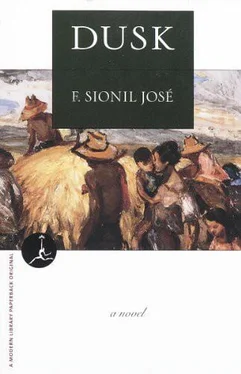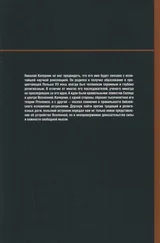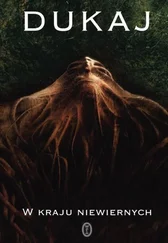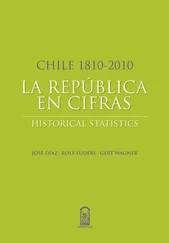They rose earlier than the sun and, having vanquished the wild grass, pushed the forest farther. What they could not cut they burned, leaving some trees as markers of their property.
Snakes lurked in the mounds which dotted the plain. Some of these mounds were spared as markers, too, and the others were leveled after the appropriate prayers so that there would be more land to till.
At night, if there was a moon, they plowed or harrowed, and dug the ditches that would bring water to the fields. In the flooded paddies, frogs were plentiful and they filled the night with their croaking. It was easy to catch them — they seemed mesmerized by the light of the lanterns and they were brought back in strings for the women to skin.
Even in a year of bad weather, the harvest was abundant in the lands of Don Jacinto; half was theirs, which was good. The harvest was niggardly in the newer land, but all of it was theirs, which was even better.
With Istak, time hardly mattered anymore, only work. The blisters in his palms had long since hardened into calluses. He had ceased wearing slippers after he left the sacristy; his soles had thickened and could no longer be easily punctured by thorns. His muscles became hard as stone and he sometimes marveled at his strength, how he could now lift the wooden mortar all by himself and how long he could endure the sun or the continuous rain that sent the other farmers home shivering, their skin wrinkled by the cold. He liked the cold more than the heat; the water dripped through his palm-leaf hat and palm-leaf cloak, his lips lost their color, but he worked on, sometimes thinking of what awaited him at home, steaming ginger broth flavored with cane sugar. And Dalin — the sweet peace with which she always welcomed him.
As in the planting and harvesting, they helped one another build their permanent homes near the creek. The houses were bigger than their first huts, with posts of sagat, some of which they dragged down from the foothills of Balungaw. They fenced their yards with split bamboo and planted fruit trees in them. Farmers in Carmay whom they befriended helped in the harvest. They gathered the ripening gelatinous grain and roasted it over slow-burning strips of old bamboo that had rotted and dried.
Istak and Dalin were married the month they arrived in Rosales, and a year after, An-no and Orang. There would have been no wedding feast, for Istak had nothing, but Don Jacinto, who was their godfather, gave them a goat to butcher.
An-no was better prepared. Not only had he built a new house by then, he had also raised two pigs for the wedding feast.
Orang’s father declaimed, his rich, loud voice drowning the babble of children and women, and they paused to listen to his exultation:
I have raised this tender plant, lavished it with care
Now, the plant is as beautiful as the morning,
Now, it is in bloom, and someday will bear fruit
This is the rich reward of parenthood—
To see the young plants grow, then give them away
When the time comes, just as I give you away,
Fair Leonora, to a man worthy of you
Strong provider and brave protector. May you, Mariano,
Remember we love her more than you ever will
And someday, soon, may we see the fruits of your love
May they grow into beautiful plants … our grandchildren.
The women wept.
More land waited for those who were willing to go to the east toward Balungaw mountain, but that land belonged to the Asperris, who had come to Rosales way back when most of it was wilderness still. The family lived in Manila, although at the eastern end of the town they maintained a massive stone house that was more of a bodega than a residence. Spanish friars and officers visited the house sometimes, but no one was known to stay there permanently. When the Manila landlord came, bright lights bloomed from within, raucous laughter rang out, and at the landing stood a line of black carriages drawn by handsome Abra ponies. When Istak passed it, he was reminded of Capitán Berong, his tremendous wealth and his three daughters, and yes, Carmencita — she must have children by now, maybe a dozen handsome bastards, and again the ancient feelings were recalled.
How fortunate that they came upon the free land Don Jacinto had shown to them. Istak had studied it before they started clearing — the limits to what was flat, a slow rise of ground with three huge mounds overgrown with grass. He must be generous to his brothers, his cousins, his uncles. When they parceled out the land the lots with mounds went to him.
“This portion I could make into a bangcag ,” he explained. “Plant vegetables, fruit trees. Bit-tik and An-no are tired of working on such land; with level fields they could grow rice.”
Dalin helped in the clearing. By the second year, the bamboo which Istak had planted as boundary to his bangcag had taken root and soon there would be shoots to harvest for food. He had planted three species — kiling for fences; siitan, which was thorny, for size and strength; and bayog, which when cut into strips while still tender would make good twine, but once mature it made good house posts, so thick and sturdy bugs could not destroy it.
Silvestre, otherwise known as Bit-tik, was taller and handsomer than his two brothers. His brow was wide, his shoulders broad, and he walked straight. He seemed strong enough to lift a water buffalo, but with all his attributes he was not really interested in farming. He worked his plot of rice land poorly, letting weeds grow and the water escape from gaps in the dikes he did not repair, so that his harvest was often the poorest in all Cabugawan. He was fond of traveling and had gone beyond the nearby villages and well into the other towns — Alcala, Villasis, Balungaw — not so much in search of adventure or opportunities as simply because the spell of new places, new people, attracted him. It was logical for his relatives to assume that he would be paired off with Sabel, Orang’s younger sister, and Istak and his uncle Blas had talked all too often of this possibility in the near future. But Bit-tik seldom paid attention to the young woman, who had now blossomed as handsomely as Orang.
There was enough to eat in Cabugawan and Bit-tik had no family, so they let him wander where he pleased and be their eyes to the strange new dimension beyond Rosales. After three or four days he would return with a few things, dried fish or dried meat, a basket, and most important for Istak, news about their neighboring towns and villages, if the Guardia was on the prowl, and if there were better places where they could flee.
Dalin and Orang often cooked his ration, usually gelatinous rice boiled in coconut milk — it would keep for three days — dried meat already roasted, and a cake of cane sugar.
On this trip, Bit-tik started in the deep, deep dawn. By late afternoon he was in Tayug, a town as decrepit as Rosales but much closer to the Caraballo mountains, which were a high green wall to the east. It was his first visit to the place. It was Sunday, a market day, but this late in the day, all the people from the nearby villages had gone, and the merchants had already loaded their bolts of cloth, mosquito netting, salted fish, soap, and other goods into their carts.
A few shops near the plaza were open, selling sugar cane, vinegar, basi , salted fish, cigarettes, and galletas . He met the two young men in one of the shops. They were looking for matches but it was one of those times when the supply had run out. As it often was in the villages, the farmers had to have a log in their stoves smoldering the whole day if there were no matches. The two men were poorly garbed, their carzoncillos brown with dirt, their hair in need of trimming. Both carried spears, which were their walking sticks. Obviously, they came from the mountain. Though neither could have been more than twenty, their faces looked old, disfigured by smallpox craters that seemed to merge into one another. Even their lips were pocked.
Читать дальше












